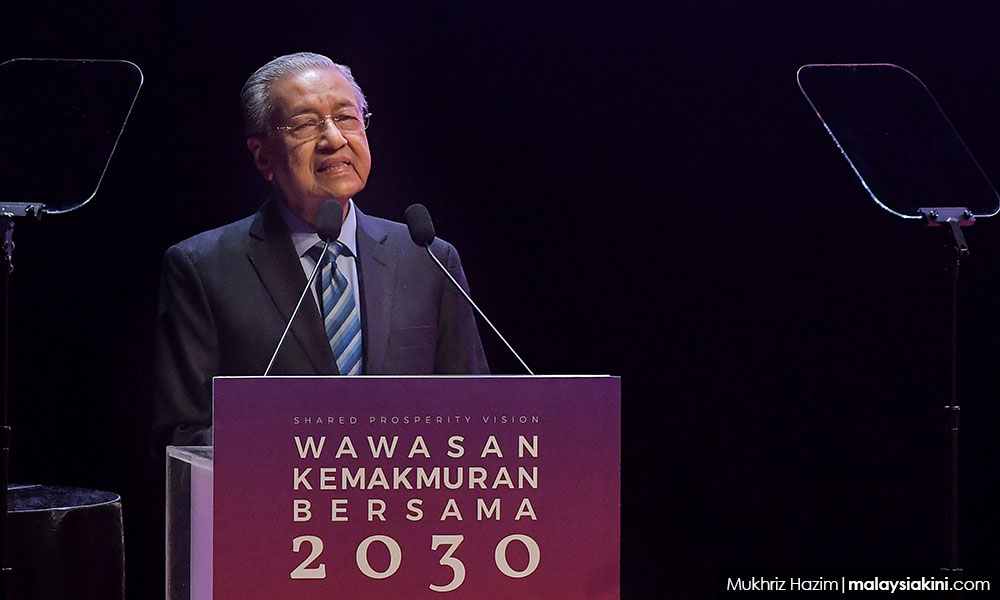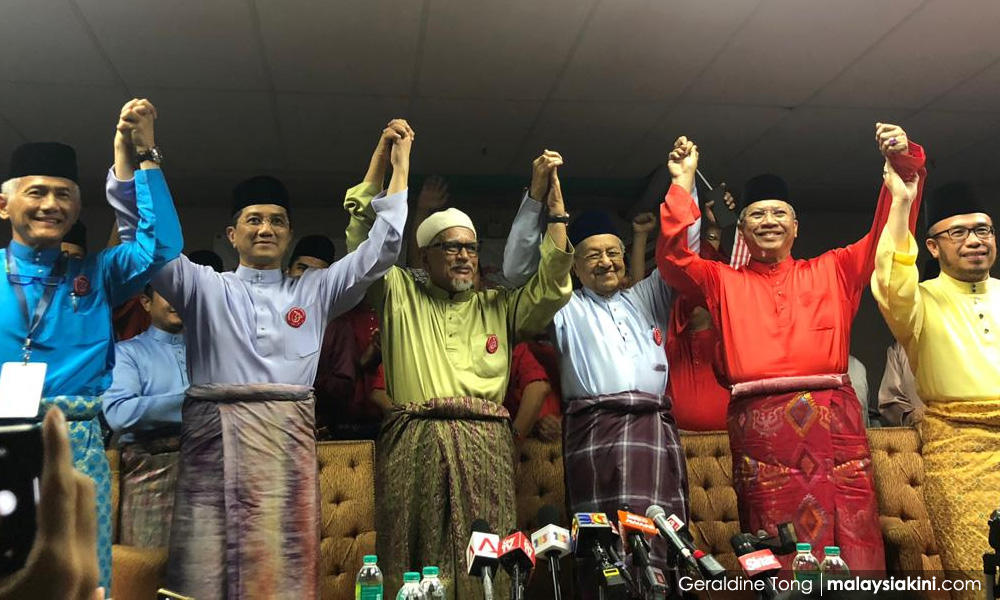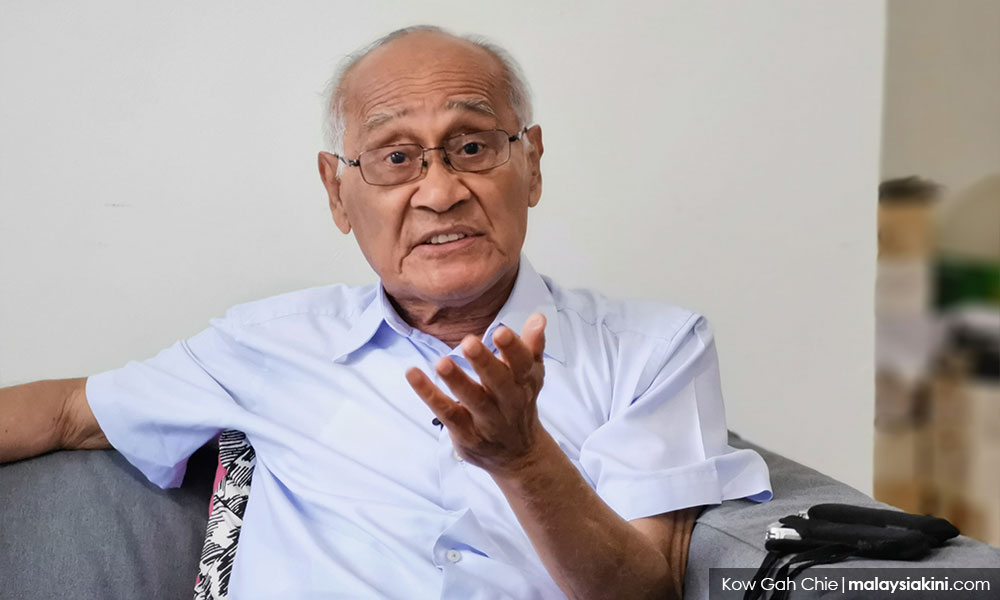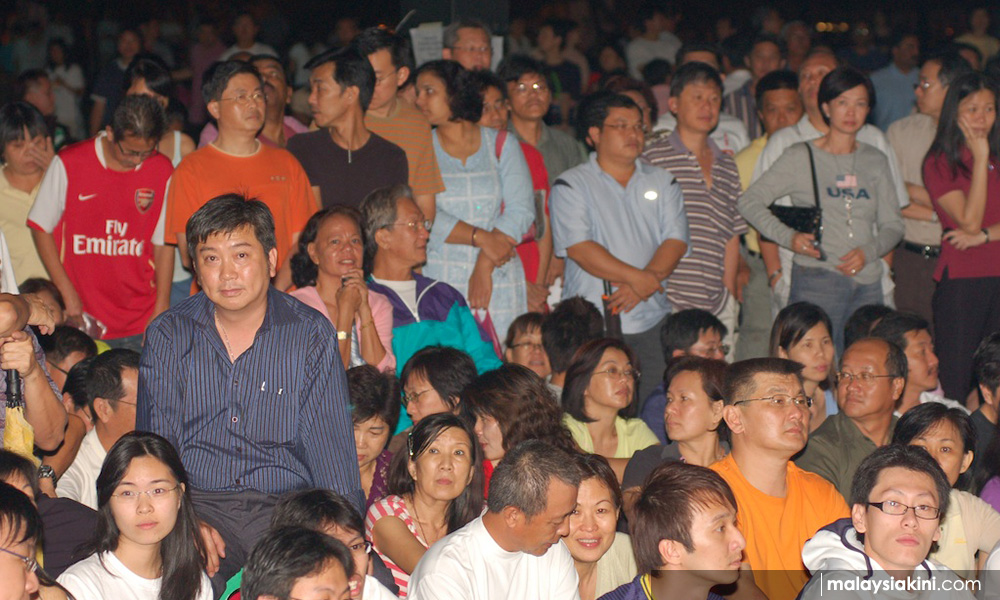
"I don't feel guilty, my conscience is clear. I did what I thought was best for the country, and if you don't agree, that is your right to disagree."
– Prime Minister Dr Mahathir Mohamad
The recent Malay Dignity Congress was nothing more than the Malay political elite and their factotums displaying their casus belli against the non-Malay communities brought upon by decades of political, religious and social mismanagement.
This was a congress of the elite, by the elite and for the elite. There were no new narratives about how to get a grip on the problems facing the Malay community, but rather old narratives of how the Malays – read this as politicians – had to compromise with non-Malay power structures because there was no hegemonic Malay power structure that could ride roughshod over everyone else.
This, of course, is a false narrative because, if anything, the DAP – a non-Malay power structure, perhaps the main one – has been supine to the old maverick and has more or less abandoned whatever first principles it had, so as not to “spook the Malays”.
The attendance at the congress – young people mostly from various universities – was an ineffectual display of racialist sentiment, dwarfed by the larger anti-Icerd rally that at least had a whiff of vox populi about it. This was a stage-managed affair that resulted in food poisoning, an apt metaphor for the kind of leadership on display.
By defining the political landscape in racial terms, this so-called dignity congress has opened itself to criticisms through a racial lens, and the conclusions are sadly obvious. The spectacle of Malay leadership coming together because the community is fractured and weak is, in reality, a spectacle of failed Malay leadership.

All of this, of course, make “hate speech” laws seem illogical and just another diversion from the failure of policy, imagination and political will of the Harapan government. I want to see a Harapan politician justify that what went down in this “dignity” congress did not run afoul of any proposed hate speech laws.
Prime Minister Dr Mahathir Mohamad took this as another opportunity to lecture the Malay community as always asking for entitlements, but never once acknowledging that he continues perpetuating a system of entitlements that he himself believes has brought ruination to the Malay community.
The prime minister seems to take perverse pleasure in lecturing the Malays about the system he and the Malay political elite continue to enable, while at the same time claiming to be a truth-teller to and of the Malay community.
His race-baiting comments on foreigners is the flip side of the coin. By always setting up the non-Malay communities as economic foils to the Malay community, he continues narratives that the Malay community is under siege and that while the community is “lazy” and unwilling to work, the state is needed to protect them from the encroachment of non-Malays.
The prime minister's ahistorical comments about “foreigners” – “The foreigners felt comfortable in this country and wanted to stay. Like it or not, we were forced to accept or we would not have achieved independence” - is just further evidence that non-Malays will never be accepted as equal citizens of this country and will always be used as pawns in a narrative of racial and religious grievances.
The reality is that when it comes to “foreigners” in this country, the economic threat is not from the Chinese or Indians, but rather the influx of diverse foreign labour and the black economy it sustains, which is a threat to working and middle-class Malays.
Add to this a religious bureaucracy that stifles the entrepreneurial spirit of the community and impedes cross-sectional commercial interaction – and what you have is a community which, locally at least, is marginalised from their fellow Malaysians and the greater worldwide economic terrain.
The fact is that no matter how much bleating Malay/Muslim power structures warn against Chinese interference, the reality is that “Malay” leadership has failed to encourage an eco-system of competitive independence that would temper the consequences of the decades-long immigration and labour mismanagement that have damaged the Malay community.

While the far-right have this dream of being the only “race” in this country, Syed Husin Ali (above) rightly points out the kind of conflict that would be the logical conclusion of this mono-ethnic paradise.
As Syed Husin argued, the reality would not live up to the fantasy: “Misalannya, kurang kekayaan dalam kalangan Melayu. Orang Melayu yang di bawah akan menganggap mereka miskin kerana kekayaan dikumpul oleh kelompok (orang Melayu kaya) yang sedikit. Justeru, timbullah konflik. (For example, Malay poverty. These Malays may think they are poor because wealth is in the hands of a small elite (rich Malays). This will give rise to conflict.)”
Prime Minister has always described the Chinese community in Manichean terms, especially when it comes to their place under the Malaysian sun. In another congress, this one an Umno one in 2002, he said:
"If we take out the Chinese and all that they have built and own, there will be no small or big towns in Malaysia, there will be no business and industry, there will be no funds for the subsidies, support and facilities for the Malays. Learn from the Chinese."
Around the same time, in an interview, the prime minister acknowledged: "The Chinese in Malaysia have no special rights, they experience discrimination. But they are more successful than us."

What does this tell us? It tells us that the prime minister has no problem reminding the Malay community that their privilege and entitlements rest on a community - Chinese - which is discriminated against, thereby setting up a narrative of resentment and self-aggrandisement when it comes to the state-created racial role in this country.
It also tells us that politicians, Malay and non-Malay, are merely playing roles in the great con which is mainstream Malaysian politics. How long can this go on? We are going to face very serious economic, social and political issues in the coming years.
How can we face such problems if we are not united, but merely assigned certain racial and religious roles and expected to be subservient to the so-called social contract?
Look at the economic problems facing certain demographics these days. Are any of them related to race or religion beyond the fact that the system of cronyism and nepotism is stifling genuine talent which any productive eco-system needs, and that race and religion are used to form policy?
Look at a simple issue of baby-dumping, for instance. What happened to the legacy of the state-sponsored family planning system that was in place before the religious delirium that grasped mainstream Malaysian politics?
The prime minister has admitted that the colonial power left us with a good system in place and all we had to do was build upon it. Then why is it, that he and his proxies continue to play this game? Why is it that non-Malay politicians continue to kowtow to this system?
Here is a tip for cowardly non-Malay politicians. Your base is not the majority community. You do not have to worry about losing votes, but instead have to worry about building consensus with whatever Malay power structures most conform to your principles. It is as simple as that. Unless, of course, what you want, are government positions and the influence that comes with sponging off Malay power?
The dignity of the Malay community has never been in question. This has always been about the undignified behaviour of mainstream Malay politicians.
S THAYAPARAN is Commander (Rtd) of the Royal Malaysian Navy. A retired barrister-at-law, he is one of the founding members of Persatuan Patriot Kebangsaan. - Mkini



No comments:
Post a Comment
Note: Only a member of this blog may post a comment.